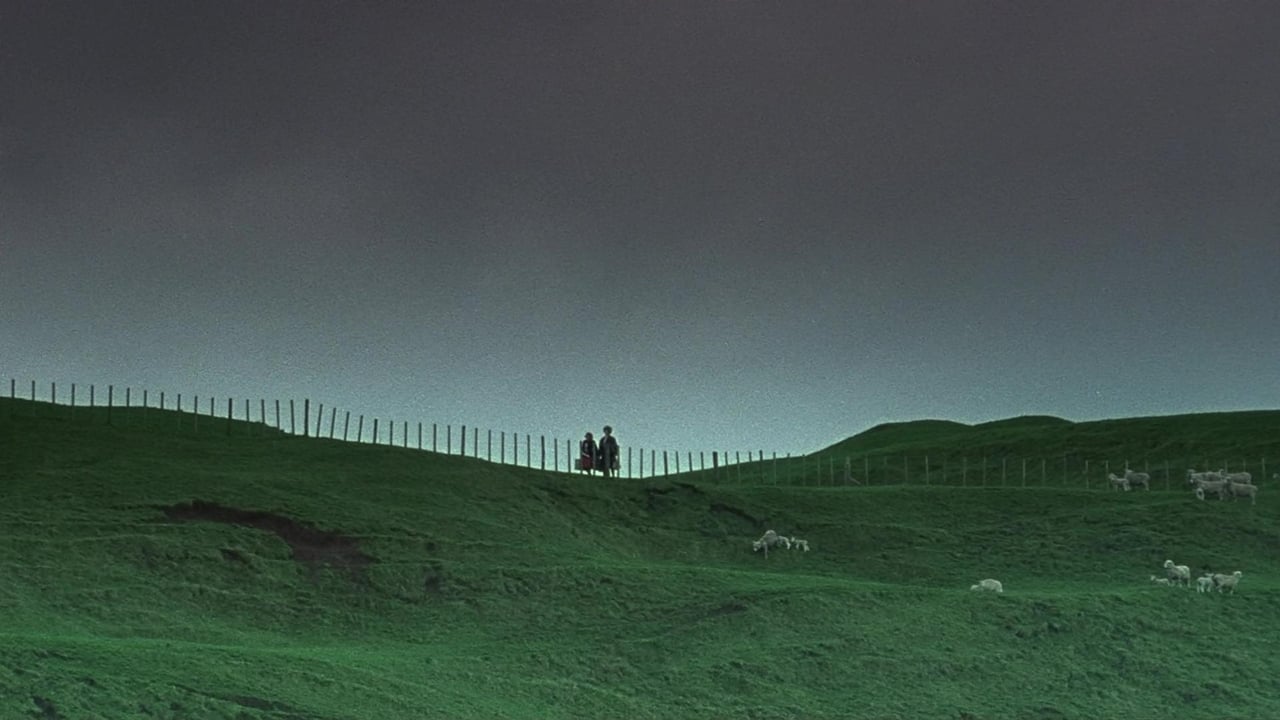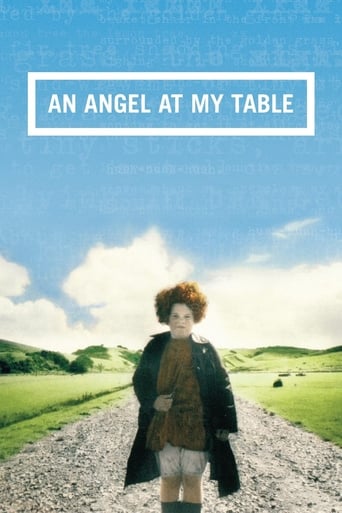

I'm not willing to give Jane Campion another chance.Anyone capable of making 'The Piano' and 'Holy Smoke' cannot be forgiven. She's had her 15 minutes. In fact she's had more than her fair share of ever being heard of.Australia has a bad problem (Campion was a New Zealander but lives in Oz now) - it's called 'The Arts Council', even though that name is out of date.We are still so utterly desperate to make ourselves regarded as literati rather than dusty farmers, that instead of funding or supporting our real writers, producers and artists, we consistently push money into pretentious, shallow, valueless garbage, produced by people 'on the circuit'.Like Jane bloody Campion.
... View MoreIn the ambitious follow-up to her celebrated debut feature 'Sweetie' Jane Campion presents yet another social misfit at odds with an unsympathetic world, drawing her inspiration this time from the autobiography of Janet Frame, a New Zealand writer who suffered eight years of electro-shock therapy after being misdiagnosed for schizophrenia. The film is structured in the form of a triptych, with the best moments (perhaps not surprisingly) all clustered in the first episode, showing the young Frame's childhood in a poor but literate household, always at the mercy of adult authority: teachers, doctors, and so forth. These early scenes aren't exactly meant to set a cheerful mood, but they look positively giddy compared to the rest of the film, the length of which eventually overwhelms its subject: watching the drab and lonely life of a painfully shy, pathetically insecure, repressed and introverted writer unfold over 158 minutes can be an oppressive experience. Campion's unique visual style is never less than interesting, but her technique of using sudden blackouts to separate short, seemingly unrelated fragments of narrative memory only underscores the difficulty of capturing on film the creative process of a writer.
... View MoreCampion's work throughout the years has been inspirational, dark, moving, and powerful. Her ability to bring characters alive through words, actions, and emotions cannot be matched by many directors in Hollywood today. For this critic, her work is reminiscent of a female Lars von Trier, in which her ability to bring these larger than life characters out of their shell transforms them into darkened characters which evoke inspiring (yet saddening) events. As I watched "An Angel at my Table", I was reminded of Bess' journey with her husband, and consequentially her life, in Trier's "Breaking the Waves". Campion, without a doubt, is a director that stands on her own two feet and this film is pure example of that. To begin, Campion's direction is flawless. This is nearly a three-hour long biography of Janet Frame's life from young girl to the author she became. For some directors this may create an opportunity to enhance other characters, to trivialize smaller events so that we can do bigger things, or to just push along, very slowly, until we all nod off from boredom. Believe me; I have sat through my fare share of stunningly dull biopics. Campion proves she is better by breaking the film into three segments (three parts of Frame's autobiography), giving us amazing imagery coupled with a brisk pace that doesn't loose any of its translation or excitement. Her use of colors, the boldness of Frame's red hair, the powerful background of New Zealand (and eventually Europe) challenges us to pay closer attention, giving us not just a story worthy of our minds, but also our eyes and heart. The colors also provide a vivid counterpoint to the harsh realities of what Frame faces, her fears and her erroneous placement into hospital.I thought this film was flawless, thus I can continue to babble on about how much I enjoyed Campion's film technique and style. She allowed us to make our own decisions on Frame, but also filmed in a style that never cramped our viewing space. We were never forced to just focus on Frame, but we did because Kerry Fox gave us this pure, uncut portrayal of Janet Frame. Due to this originally being filmed for New Zealand television, I can only assume it eliminated Fox from being nominated for an Academy Award, but she 100%, who heartedly, hands-down deserved it. Her performance, from someone I had never seen before, was phenomenal. She literally transformed herself into this character, every step that Fox took on screen she was taking it in the way that (we can only assume) Frame would do it as well. What I am trying to say is that while I never saw Janet Frame herself, Fox never went out of the character we were first introduced to. Fox's Frame grew with each frame, exposing herself differently to us and giving us a new side of her each time. Again, I am drooling on myself, but "An Angel at my Table" is one of those films that should be watched by film students eager to learn how to get into the mind of their characters. This would prove to them that there is more than just what is written on the page, and fully demonstrating how to bring a soul into a man-made story. Kerry Fox was everything you wanted to see on screen, she was emotional, sensitive, caring, unquestionably curious, scared, and yet completely and utterly human. Coupled with Campion's direction, the two take what could have been a bland film and transformed it into one of the greatest performances over the past 20 years.For what other reasons should you watch this film? If you aren't as impressed with the direction or Fox's performance, Criterion packs the DVD with plenty of bonus features, but as well as an amazing transfer. The sound, the music of Frame's life, is breathtaking. It accompanies the vision and Fox's actions perfectly. The song sung by the sisters on the beach of New Zealand still remains with me today, nearly four days after my viewing of this film. The other actors are very good in this film, alas; I cannot say anything further because my focus was entirely captured on Kerry Fox. Yes, she was that amazing. The bonus features on this disc, as mentioned before, are great to learn more about how Campion directed this film as well as her thoughts via an audio commentary. In essence, the Criterion release of this film is the only way to watch this. It is a flawless disc for a flawless film. I am excited and proud to have this within my catalogue of films.Overall, in case you haven't been paying attention this entire time, "An Angel at my Table" was nothing short of perfection. When I raise this film up to other biography based films, there isn't one that compares. Campion's work continues to impress as she grows, developing her strengths in other genres, and pushing actors to new limits beyond what we expect, i.e. though battered by critics, see Meg Ryan's performance in "In the Cut". "An Angel at my Table" has a perfect blend of score, outstanding visuals, enthralling storytelling, and again, this powerful ability to control her actors and expect nothing less than their best. Kerry Fox should be studied by students in this film, Campion's direction glides this actor from scene to scene, but Fox carries it all on her shoulders, with pride and with power. This was not an easy film to create, but with Campion and Fox behind the helm what could have been a very dull, overly dramatic biography on the great Janet Frame, transformed into this staple of modern cinema, a map (so to speak) for others who wish to create films based on real people "An Angel at my Table" would lead you straight to the gold. Watch it. Be impressed. Than watch it again. Rinse, wash, repeat.Grade: ***** out of *****
... View MoreThis is an excellent mini-series that I couldn't stop watching. Based on the true-life story of writer Janet Frame, it provides an insight into a mental health system that further hampered, rather than improved its patients, and shows how one woman managed to get passed this, to become the respected woman New Zealanders now know her as.
... View More